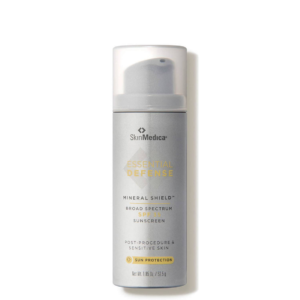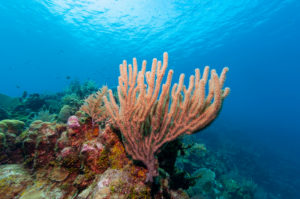Protect Your Skin and the Planet with Reef Safe Products
MaryBeth Stanziola
Using a high strength sunscreen is one of the most important steps in any skincare routine, and it’s even more vital when the UV index is consistently high in the summer months. If you’re engaging in physical activity or taking a dip in the water, sunscreen should be reapplied every two hours.
Protecting yourself from the sun may come at the price of damaging endangered coral reefs if you don’t know what to look for in your sunscreen, however. Many sunscreens are not “reef safe”, meaning they contain ingredients or large particles that bleach and can potentially kill natural coral reefs. Thankfully, there are many options that are good for both your skin and the planet!
Urban You For Me carries multiple reef safe sunscreens with different SPFs and formats (lotion, spray, tinted). Members save 20% on any purchases and 10% if they sign up for a subscription for any specific product!

What does it mean for a product to be reef safe?
Typically, reef safe products are free of Oxybenzone and Octinoxate, two common U.V blocking chemicals responsible for coral bleaching. Most reef safe products are also paraben free and non-nano, meaning that individual particles are too large for coral to consume and digest.
Why should I choose a reef safe sunscreen?
Coral reefs protect beaches from erosion, storms, and provide homes to entire marine ecosystems. The earth’s natural reefs are already endangered due to pollution, acidification, and climate change. Non-reef safe products contribute to these issues when they contaminate sand or water, which in turn bleaches the coral. Bleached coral cannot photosynthesize and will most likely die, affecting local communities, the ecosystems built around them, and the environment as a whole.
Reefs can take anywhere from decades to centuries to start growing on their own, so using reef safe products is essential in protecting the oceans’ current population of coral.

How do I know if a product is reef safe?
There are many ways to determine whether or not a product is reef safe! A good place to start is ruling out all non-mineral based sunscreens if they’re compatible with your skin. Mineral sunscreens typically have a base of Zinc Oxide or Titanium Oxide, which are safe for reefs and the oceans, unlike Oxybenzone and Octinoxate.
Another good rule of thumb is to go for lotion sunscreens instead of sprays. There are reef safe sprays, like the PCA Active Protection spray on our website, but generally there are more mineral-based lotion options.
Check for non-nano labels, Zinc Oxide as an active ingredient, or a general mention of the product reef safe on the packaging!
If for any reason your skin conflicts with reef safe ingredients, don’t feel guilty! There are many ways to actively protect the environment and coral reefs. If you’re looking for a starting point for buying a reef safe product, our selection has products suitable for all skin types!

